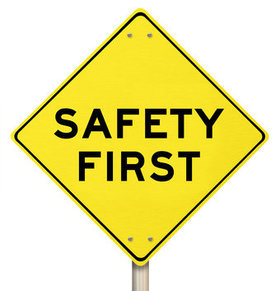Agriculture
How to get involved this National Farm Safety & Health Week

“Every Farmer Counts.” That’s the theme for the upcoming National Farm Safety and Health Week that runs Sept. 20-26.
The effort to increase physical and mental health in agriculture started under U.S. President Franklin D. Roosevelt in 1944, according to Jana Davidson, education content specialist with the Progressive Agriculture Foundation.
“Because harvest is such a busy, active time on the farm, we really want to bring safety and help to the forefront,” Davidson said. “We want folks to be celebrating it and being safe 24/7, 365 days a year, but we know sometimes it gets put on the backburner.”
Every three days, a child dies, and every day, 33 children are hurt from agricultural-related incidents in the United States, according to the National Children’s Center for Rural and Agricultural Health and Safety (NCCRAHS).
“One is far too many,” Davidson said. “Many of these incidents could have been prevented with just a bit of knowledge and safety precautions. That’s really what makes our goal, our mission, most prevalent today.”
Most cases happened when the children were not working on the farm, they were just at the wrong place at the wrong time.
“Maybe they were in someone’s blind spot,” Davidson said. “Maybe they were on dad or grandpa’s lap getting a ride on a tractor or an ATV.”
Of the leading sources of fatalities among these youth, 47% involved transportation (including tractors, ATVs, and UTVs), 20% involved contact with machinery, and 13% involved incidents with animals and other humans,” according to NCCRAHS. As for ag-related injuries, 60% occurred to children that were not working on the farm.
Davidson said the first step to safety is for adults to role model appropriate behavior.
“We are our child’s first teacher,” Davidson said. “They are always watching us. We need to keep that safety focus all the time, wearing that helmet when we jump on the ATV or UTV, making sure that if we’re going to go in the grain room, we take the extra precaution.”
She offered five key safety tips. (1). Never allow kids to climb and play on or near farm equipment, even when it is not in use. (2). Always lock-up equipment and machinery. Remove the keys and keep them out of reach of children. (3) For equipment that may fall such as raised buckets, make sure they are placed in the down position. (4) Do not allow children to be passengers on tractors, lawnmowers, or other farm equipment.
“This can be a little controversial because not everyone agrees with it,” Davidson acknowledged. “It’s much easier to bury a tradition than bury a child. Here at the Progressive Agriculture Foundation, we’ve heard so many statistics where it was just an innocent ride that wound up being tragic. That’s actually how our foundation got started from similar stories that were shared in the 1990s.”
Lastly, (5) designate and create a “safe play area” with protected boundaries such as a fence that is far away from where machinery is operated or stored.
“We want kids to develop a strong passion and a love for agriculture. “They can do so with smaller tasks like gardening, but not necessarily be doing tasks that are not age-appropriate for their developmental abilities.”
Throughout National Farm Safety and Health Week, the Progressive Agriculture Foundation will help highlight a different safety-related topic. Families can join a story hour series where there will be the option of four books all tied to an emerging issue and safety help such as tractor safety, water safety, and even mental well-being and stress management.
“We’ll talk a little bit about resiliency and overcoming obstacles,” Davidson said. “We have four awesome books that are tied to a real-life story.”
After the book readings, there will be a follow-up including an interview with the author and other special guests. The schedule of the story hours can be found online.
Also happening during the week, the foundation will premiere its virtual Progressive Agriculture Safety Day twice Wednesday.
The Progressive Agriculture Foundation is still accepting applications to host a Progressive Agriculture Safety Day with training for volunteers offered online.






